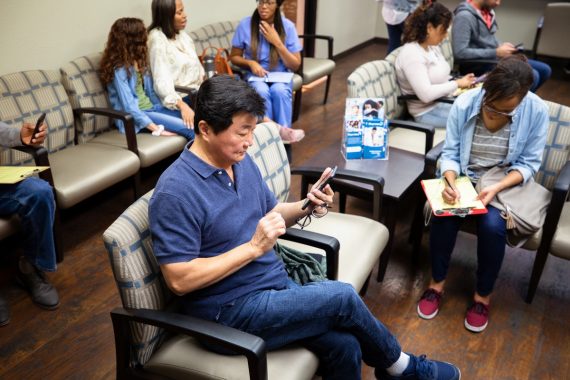Non-vaccination GP appointments increase by 3.5 million in June

GP practices in England carried out 31.1 million recorded patient appointments in June, according to the latest figures from NHS Digital.
The estimated appointment numbers include 4.2 million Covid vaccines delivered by practices or PCNs.
This was down slightly from May, when practices saw 31.5 million patients, but this had included 7.5 million Covid vaccinations.
Non-vaccination appointments were up by 3.5 million in June compared to May 2020 and by 3.6 million compared to pre-pandemic June 2019.
GPs saw more than 14 million patients throughout last month with other members of the practice team covering 11.8 million appointments – with the majority of consultations taking place in person.
Just over 15 million patients were seen face-to-face while 10.6 million had telephone appointments.
The data for June shows there were 161,689 home visits and 109,412 online consultations.
The figures also show that 45.6% of appointments took place on the same day as they were booked.
BMA GP committee chair Dr Richard Vautrey said the data showed GPs ‘continue to be under immense pressure as they strive to meet the growing health needs of people from within their communities’.
He said: ‘Just today, new statistics show that practices in England booked 3.5 million more appointments in June than they did the month before, and 3.6 million more than they did in the same month two years ago, long before the onset of the pandemic.
‘On top of this GPs and their teams continue to play a leading role in the vaccinations campaign.’
In the context of the ‘growing demand’, the NHS’s ‘large backlog’ and ‘looking forward to what looks to be an incredibly difficult winter’, GP practices are ‘in clear need of support’, Dr Vautrey said.
‘The BMA has been clear that Government pledges on increasing the GP workforce need to be realised so that we have enough family doctors to meet the needs of their patients, while unnecessary bureaucracy preventing staff focusing on patient care must be eradicated for good.
‘Even before Covid-19 practices were understaffed and under-resourced, and the pandemic has only exacerbated the severe pressures felt by GPs and their colleagues, with many being pushed to breaking point.
The Government and NHS England have ‘failed to grasp the need to provide urgent support to general practice’ until now, but have the ‘perfect opportunity’, with the appointment of a new health secretary and NHS chief executive, ‘to demonstrate their commitment to general practice through this critical stage of pandemic recovery and beyond’, he added.
Pulse October survey
Take our July 2025 survey to potentially win £1.000 worth of tokens











